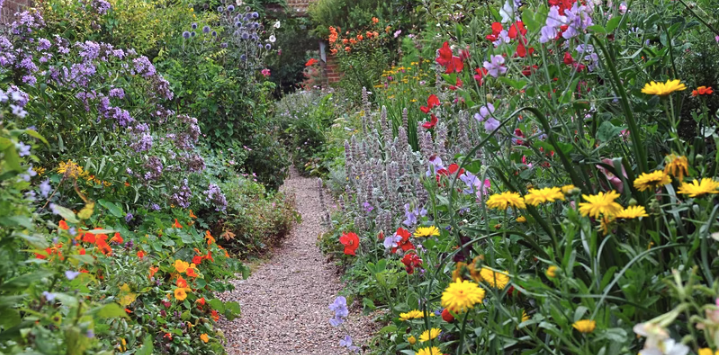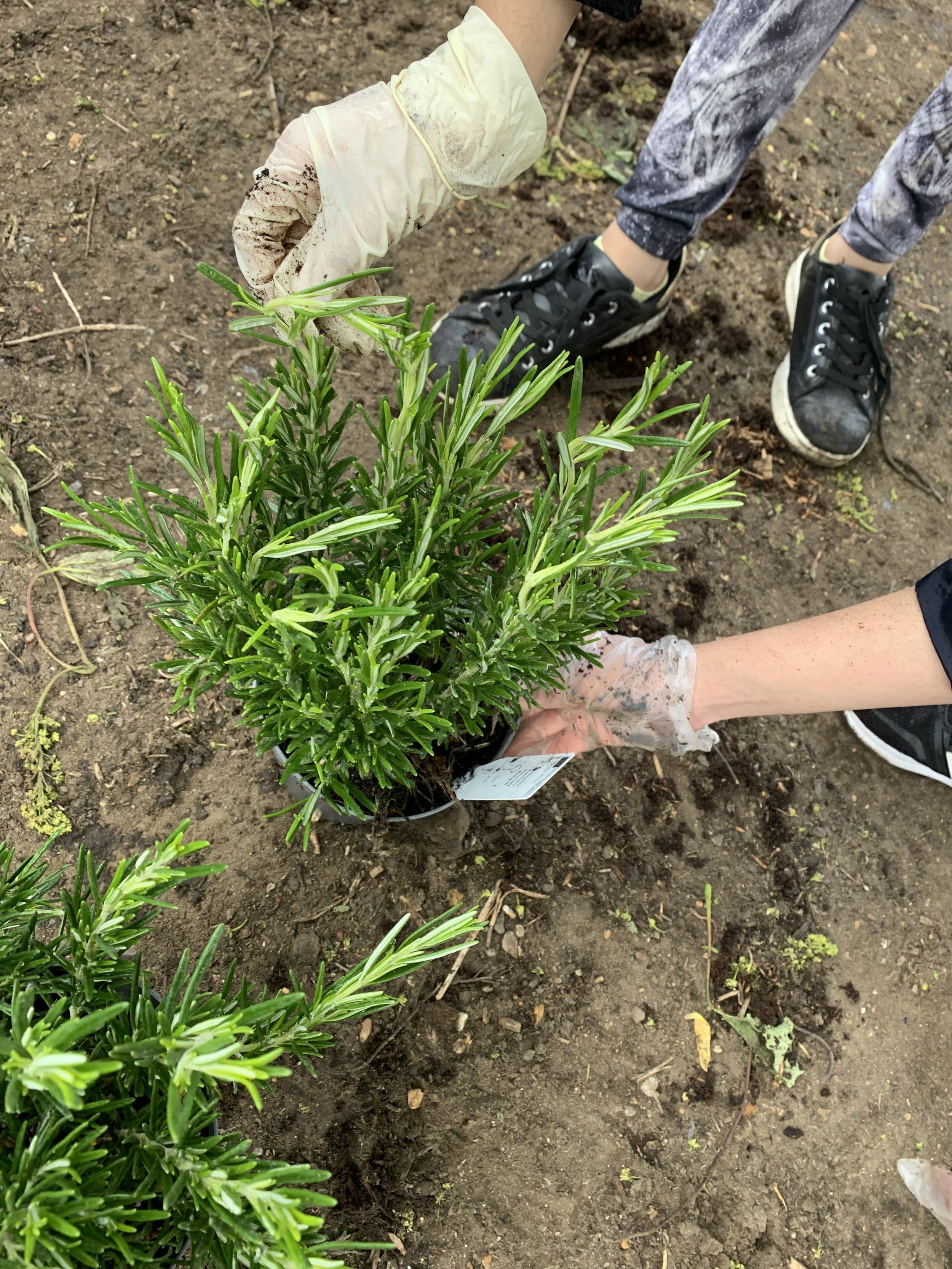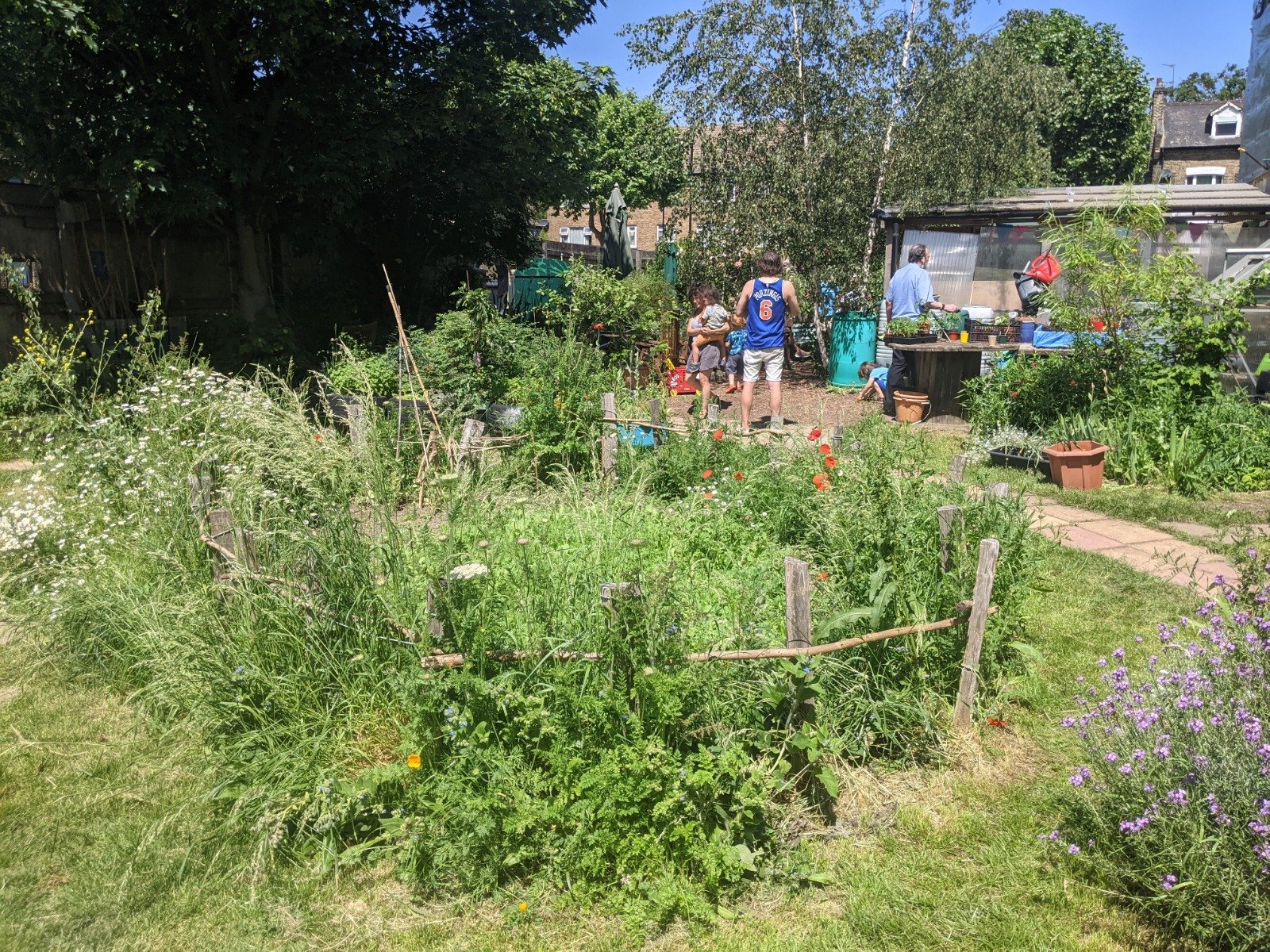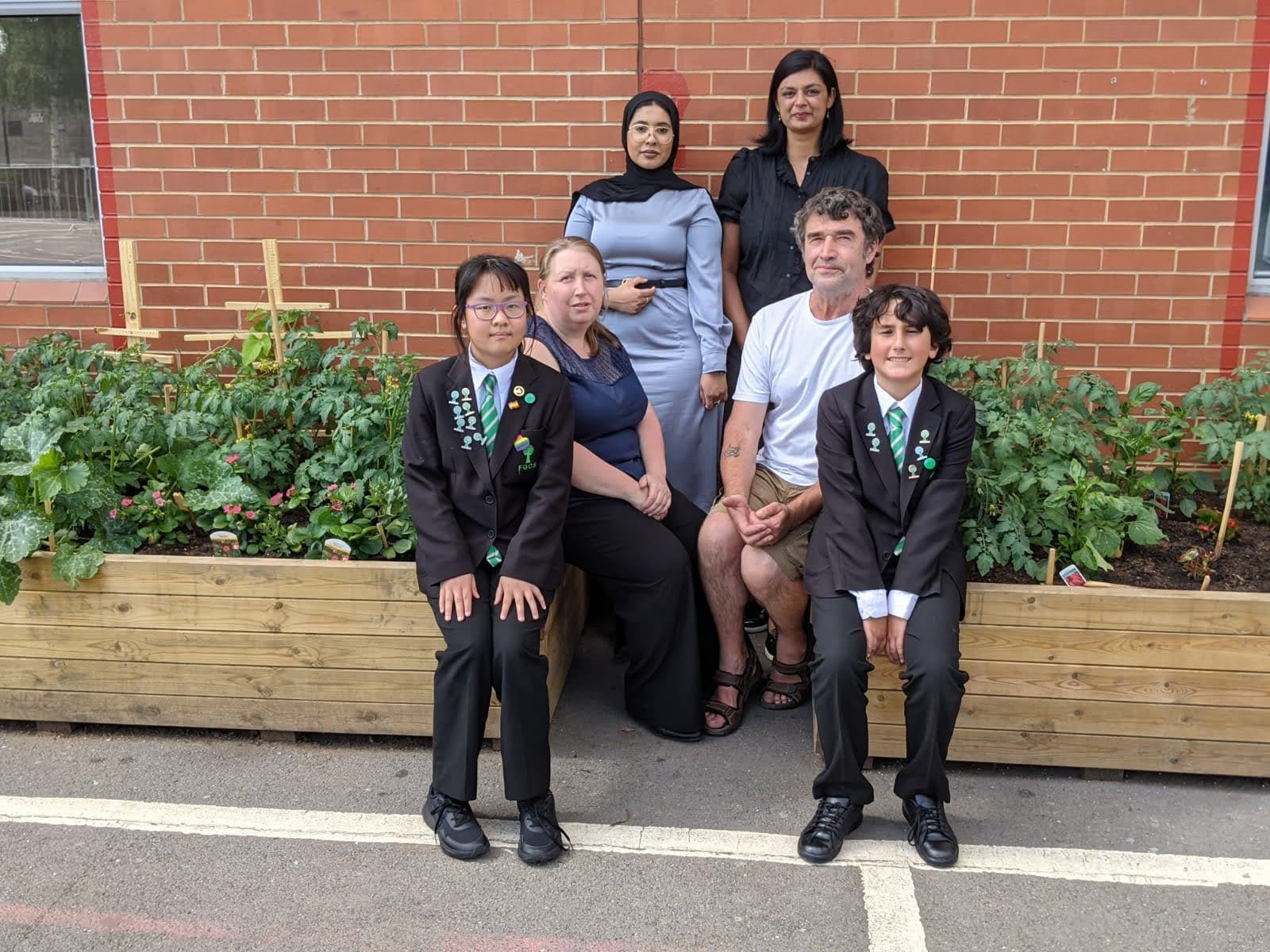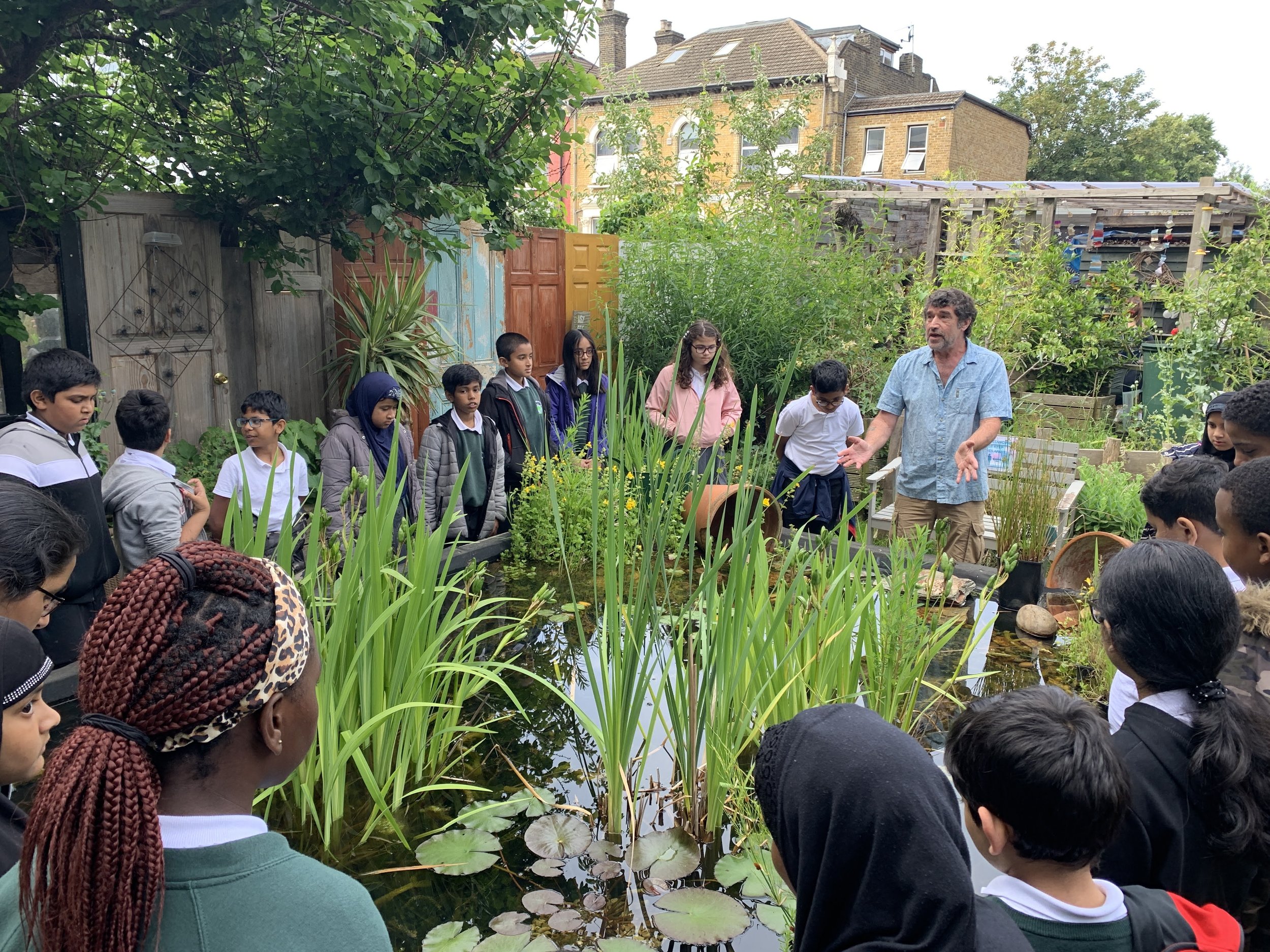PROJECTS & Outcomes
FLOURiSH - A PATHWAY TO THE GREEN ECONOMY
Over three seasons in 2022/23, the Flourish programme ran a series of workshops – the first for adults in three different community gardens in the borough of Newham, and the second for students in schools across the borough.
The adult workshops comprised of:
· Gardening 101, Growing in Small Spaces, You Can’t Grow That Here, All About Flowers, Growing Food and Community and Using the Greenhouse
Across the adult workshops we had good regular attendance at Manor Park Community Garden and Forest Gate Community Garden, with slightly less engagement at Abbey Gardens. At all three gardens we had people return for multiple workshops, sometimes returning with family members and friends. We would estimate that 150-200 people directly engaged with this workshop series.
The schools workshops were:
· Gardening 101, All About Seeds, Our Garden Insects, What Plant Is That, Careers in Horticulture
Workshops took place either in schools or at a school’s local community garden, and whilst we mainly worked with primary schools we had one secondary school, and usually multiple class groups from each school, or an extracurricular gardening or environment club. We ran multiple workshops with most schools, and we estimate that we reached 350-400 students.
Did Flourish achieve its objectives?:
Our objectives for the project were to engage adults and young people with nature, teach them tangible skills in gardening, provide opportunities for them to consider green careers and connect with their communities.
The biggest indicator that the project achieved its objectives was that in every school workshop we ran, at the beginning of the workshop students were reluctant to get their hands dirty and were disgusted by insects and compost, but by the end they were digging with their hands in the ground, planting seeds, feeling the heat of decomposing compost, looking for worms and snails and confidently picking them up to look at them, all with very dirty hands! We were always delighted to see how their relationship with their environment changed in such a short period of time, and how excited they were about the discoveries they were making. This felt like a big success.
The feedback from schools especially made it clear that Flourish gave the students an insight and understanding into how they can incorporate an environmental focus into their daily lives. The experience of Flourish instilled the idea that working in the environmental space is a viable option for their future professional lives.
In the adult workshops, we had many return attendees who came to multiple workshops and were engaged not only with the workshop leaders and the material, but also with each other and their local community garden. It was great to see people developing connections with their neighbours and feeling welcome in community spaces.
All participants were encouraged to stay engaged with their local community garden and were pointed towards more resources for their ongoing skill development, and many adult participants seemed excited and empowered to grow things in their own spaces, even if that space is only a windowsill. Some said they would like to expand their knowledge and further develop their skills, which is precisely what we hoped to achieve.
GREEN FOREST GATE
Green Forest Gate was a partnership between Loop Labs and Forest Gate Community Garden. The idea was to bring the garden beyond the fence and into the local community, to enhance local awareness and appreciation of nature and to create sustainable benefits for the community. We ran the programme from early 2020 through to Autumn 2021.The learning emphasis was on:
· Creating cleaner, greener areas walking routes throughout the neighbourhood
· Planting more trees, hedges and hardy vegetation within school grounds
· An in-class and outdoor food growing programme for schoolchildren
· Adult community planting workshops and volunteer opportunities
Working with four local schools, with the Forest Gate Community Garden as HQ, we delivered an amazing array of growing activities with the schoolchildren, the local community and the garden volunteers. We planted an orchard full of fruit trees and herbaceous bushes, provided large planters for schools and the children stuffed them full of vegetable plug plants and fragrant herbs. We installed a 100m long native species hedge and floral border, supported local guerilla gardening activities and had a little press feature in the Newham Recorder.
The community gardener taught children how to plant and maintain their gardens and students were encouraged to maintain a visual record to see how things grow.
School activities have been supported by special lessons, Community Garden visits and the creation of school gardening communities
Green Forest Gate also successfully brought together the local community to collaborate with Newham Council for the Earlham Bridge beautification, which has become a pocket park. The problematic area which was plagued by anti-social behaviour, was improved with better lighting, new beds, in-ground planting and fencing changes. This was planted out by volunteers from the Forest Gate Community Garden and local residents in the Autumn of 2021.
What we achieved: GFG worked with more than 250 schoolchildren in four local schools and the similar number of adults across our community workshops and planting sessions. We planted close to 450 trees and hedging whips and created a new 100m hedge at St James’s Primary school and a 30m bed in front of Forest Gate Community School. We created new green spaces, including a pocket park in Earlham Grove and we added an additional 350m sq of new and/or improved green space in the local community.
THE Citizen Science Programme
bespoke school programmes designed to improve air quality awareness
Since 2015, Loop Labs has been working with 7-11 year-old schoolchildren by taking them through the "Urban Citizen Science Programme". The programme is adaptable and can be tailored to suit curriculum requirements, supplementing school priorities and deepening learning.
Alongside the in-class instruction, we deployed some technological aids, including Internet of Thing connected air quality sensors, creating a concentration of local sensors, which connected to a worldwide community. The parent participants also received activity trackers, which quantified their walking rates. These devices were used as part of an ongoing awareness and behavioural change programme focused on air quality, respiratory health and mindful walking and encouraged ‘pester power’ to get parents to more active with their children.
At the programme end, the children and their families come together with a wide range of local stakeholders, community champions and local politicians to a Town Hall meeting - which acts as a catalyst for sharing learnings, ideas and is a springboard for civic participation.
What we achieved: The Urban Citizen Science Programme has been delivered to more a thousand schoolchildren and across school communities in Newham, Tower Hamlets in Lambeth.
The aim of the programme is to embed long term and durable behaviour change in participants, such as increased walking and active travel, understanding and using clean air routes and encouraging less car use, particularly for short journeys.
Loop Labs consulted the parents six months after the programme to gauge the impact of the project on the participating pupils and their families. Of the evaluations that were received, an average of 70% of the participants were encouraged to walk more. Many of the families changed their behaviours i.e. “were encouraged to walk more” and “changed their walking habits”.
80% of the respondents were more aware of air pollution and would take more time to reach their destinations, in order to travel via green spaces and less polluted roads. Many participants had continued to walk more for short distances, rather than driving.
Parent feedback has been really positive:
“Happy doing the project, it made me walk to the shops more instead of using the car.”
'The cleanliness of air is important to the health of our children. Awareness has improved immensely. A helpful, useful and informative programme."
“Children were really engaged and got in to it, this is a great way to motivate people.”
POLLUTION EXPLORERS COLLECTIVE ACTION
PECA stands for Pollution Explorers Collective Action. It was an experiment to see how small personal changes create improvements over time. Loop Labs recruited 60 local volunteers to make one small meaningful change in their daily life, individually or with their family.
PECA was supported by the lottery-funded innovation foundation NESTA.
PECA’s goal was to inform government policy concerning environmental and community behaviour. The lead partner, Umbrellium, carried out this experiment in order to assess how a ‘collective intelligence’ approach compared to a traditional approach in tackling a complex socio-environmental issue. The focus was air quality – something that we all affect, and are all affected by, though it is largely invisible and difficult to understand and perceive.
The experiment presented participants with 15 challenges they could undertake (choosing as many or as few as they wanted, and being able to change) that at scale are known to improve air quality. The experimental groups were able to communicate and collaborate, while the control group were not. All groups were given continual feedback on how well they were doing at their challenges and how much impact they were having as a group.
A summary report and the proposed collective intelligence methodology is available for review on the Umbrellium website.
SCHOOL AND COMMUNITY PROJECTS
WEAR AQ & UMBRELLIUM
WearAQ, which combines people’s subjective perception and intuition with wearable technology and machine learning algorithms to investigate AQ issues.
Can we assess the quality of air without the need for air quality sensors?
A total of 120 people were involved in the project over a span of two years.
The project found that people’s ability to assess the quality of air in each workshop compared to the digital sensors vary widely, the highest workshop correlation being 75%.
What can we do as a community to tackle air quality issues?
Participants were asked to make a small action to help tackle air quality issues. They made a commitment to a behaviour change and wrote it on a postcard. 90% of participants committed to the action for seven consecutive days.
Loop Labs developed and delivered the community engagement strategy.
WearAQ pilot project with Marner Primary School, Tower Hamlets
Urban Citizen Science - BONNER PRIMARY
The UCS programme catalyses conversations about air quality within communities, aligned with the goals of current environmental policies. This activity leads to long-term, durable behaviour change such as increased walking and reduced car use for shorter journeys.
In April 2018, Loop Labs commenced the delivery of a six week Citizen Science Programme at Bonner Primary School (Mile End) in Tower Hamlets.
In addition to the in-school academic programme, we also focused on involving families, the local community and local businesses to engage with the programme, which culminated in a Town Hall-style presentation event at The Centre, Mile End in June 2018.
The final project report is available for review on the Tower Hamlets website.
Bonner Primary School and their most excellent ABBA Air Pollution Song!
Walk the Talk: IOT, Wearable TecH & Pester Power
In 2013 - 2014 Loop Labs designed and developed "Walk the Talk" in partnership with Intel and with funding from the Technology Strategy Board / Innovate UK.
The theory was that fun is an effective driver. Game mechanics can play a critical role in behavioural change. Social competition and reciprocity are powerful motivators.
The project had children designing a video game that encouraged a greater awareness of the benefits of walking. This was used together with a mobile tracking app that allowed young players to monitor their families’ walking. As their parents walked more, the game tracked their steps, giving the kids more swag for their avatars. Pester power at its best!
In this video, Katz Kiely, Loop Labs first Director, discusses Smart Cities and how Walk the Talk came to life:
